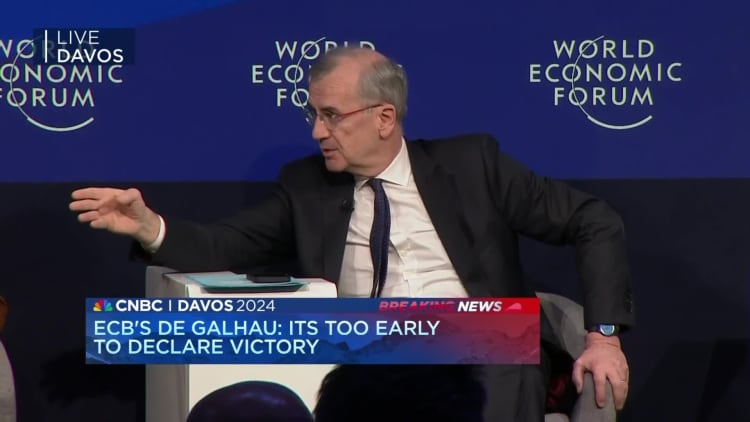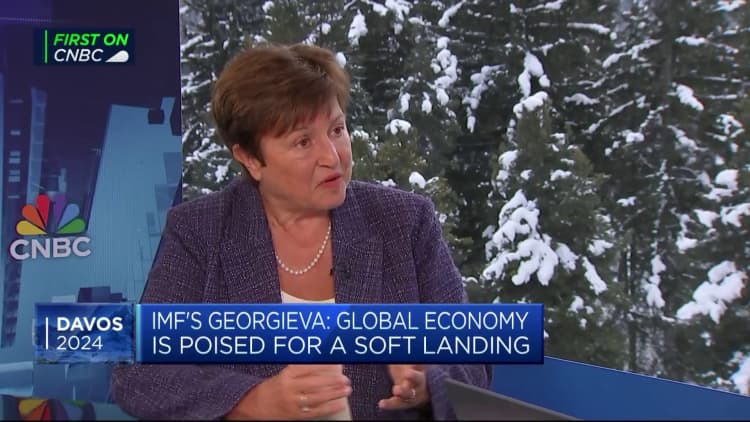Steve Sedgwick, anchor for CNBC, Gita Gopinath, first deputy managing director of International Monetary Fund (IMF), Francois Villeroy de Galhau, governor of the Bank of France, Adena Friedman, chief executive officer of Nasdaq Inc., and Chuck Robbins, chief executive officer of Cisco Technologies Inc., left to right, during a panel session on the opening day of the World Economic Forum (WEF) in Davos, Switzerland, on Tuesday, Jan. 16, 2024.
Bloomberg | Bloomberg | Getty Images
Around three quarters of the effects of tighter monetary policy have already fed through to the U.S. economy, according to an analysis by the International Monetary Fund.
“We have to recognize that there has been a lot of resilience in the economy despite the rate hikes that we have seen … our estimate is that for the U.S. about three quarters, or 75%, of the transmission has already gone through, and the rest will go through this year,” the IMF’s Deputy Managing Director Gita Gopinath said at a CNBC-moderated panel at the World Economic Forum on Tuesday.
There is more transmission still to feed through in the euro area, where interest rate hikes started later, she said.
The U.S. economy has maintained stronger growth than was widely expected since interest rates began rising in March 2022, though several strategists have spoken of a potential recession this year. The euro zone economy, meanwhile, has fallen into stagnation. The European Central Bank began hiking in July 2022.
“What is universally true is we have households and corporations with stronger balance sheets. And we’ve seen effects, but we’ve also seen resilience,” Gopinath said on the panel.
“Labor markets are slowing but at a much more gradual pace. Which is why I think at the IMF we feel that a soft landing scenario, the probabilities have come up quite a bit, because inflation has come down without needing that much of a loss in terms of economic activity.”

François Villeroy de Galhau, governor of France’s central bank, noted on the same panel that there were two lags in transmission: from monetary policy decisions to financial conditions, and from financial conditions to the real economy.
“About the first lag, I think the transmission is more or less over,” he said. “In Europe, what is key is the transmission through banks, because as you know, the bank credit channel is about two thirds or three quarters in Europe, much more than in the U.S.”
“What is more difficult is the second lag … here it’s much more difficult to assess, and it strongly depends on various sectors. If I take real estate for instance, I think most of the transmission has happened already because it’s very sensitive to interest rates. For other sectors, we will see,” de Galhau added.








